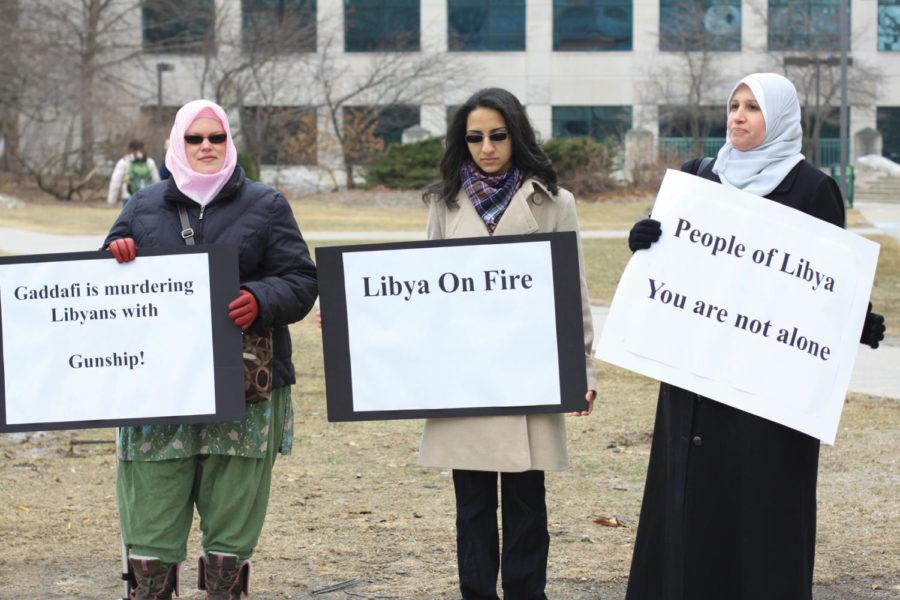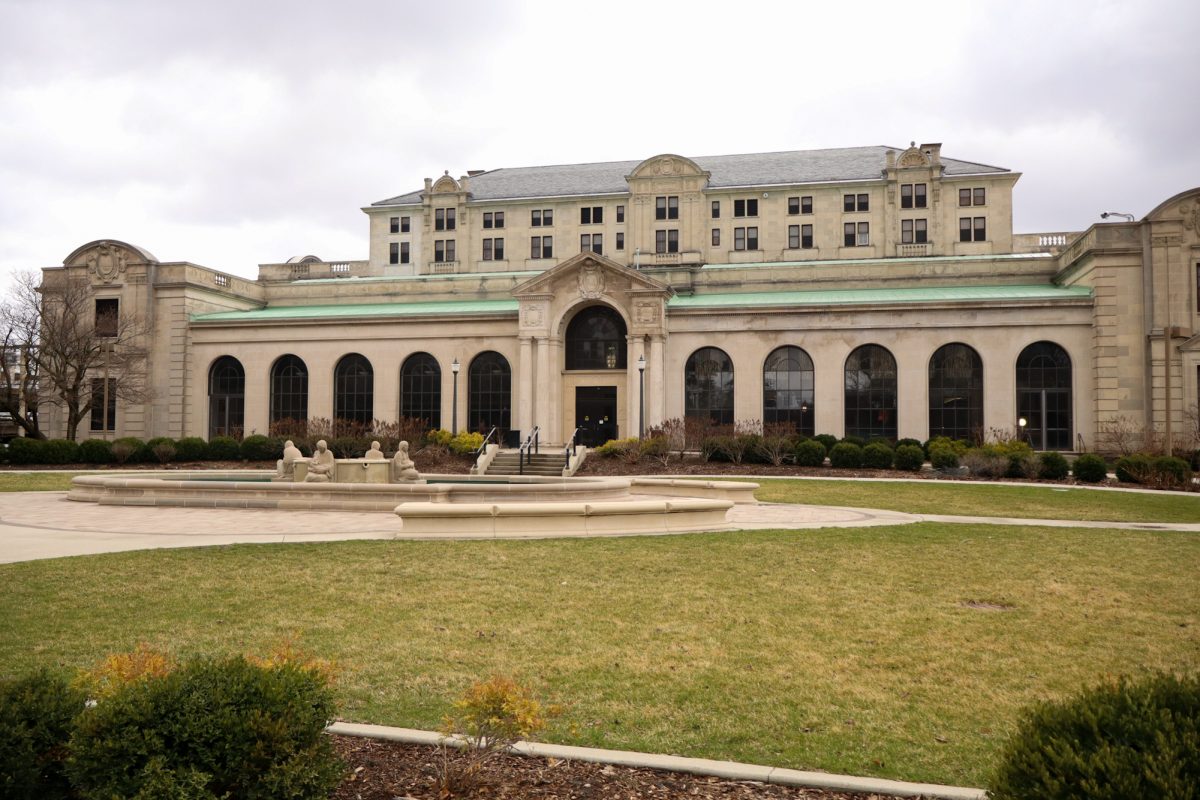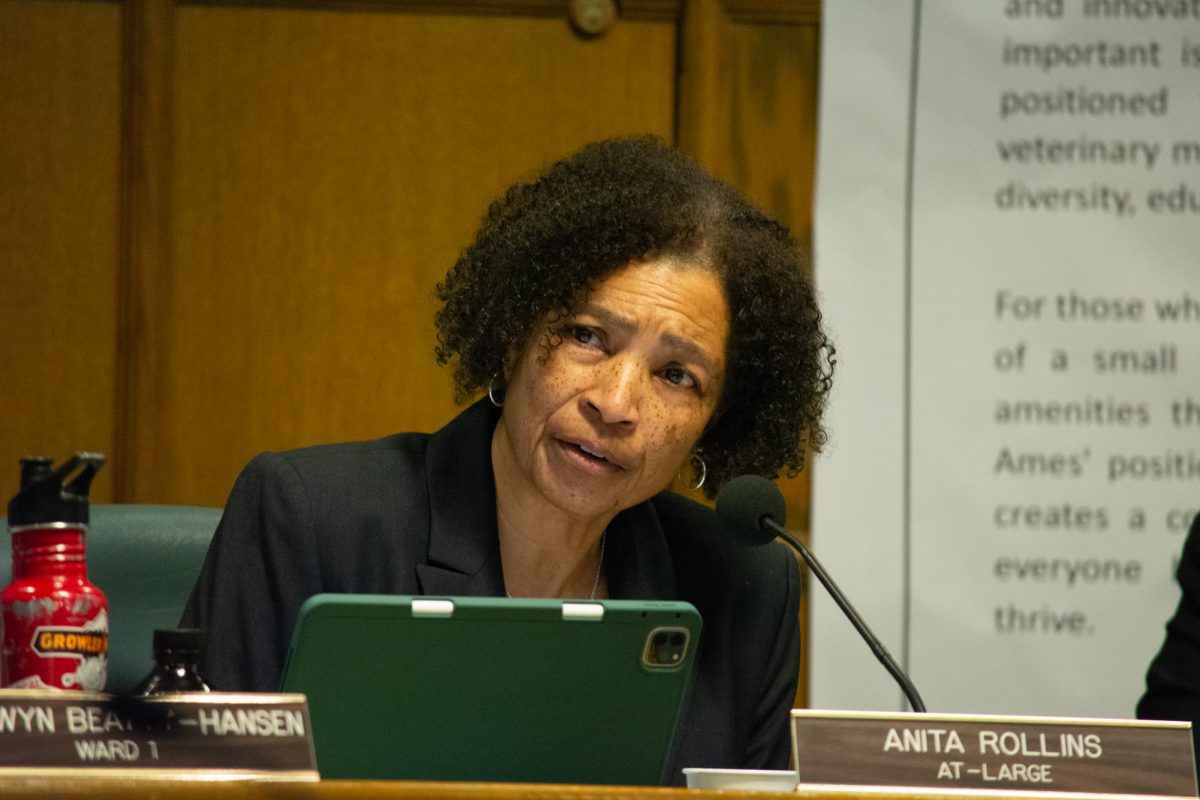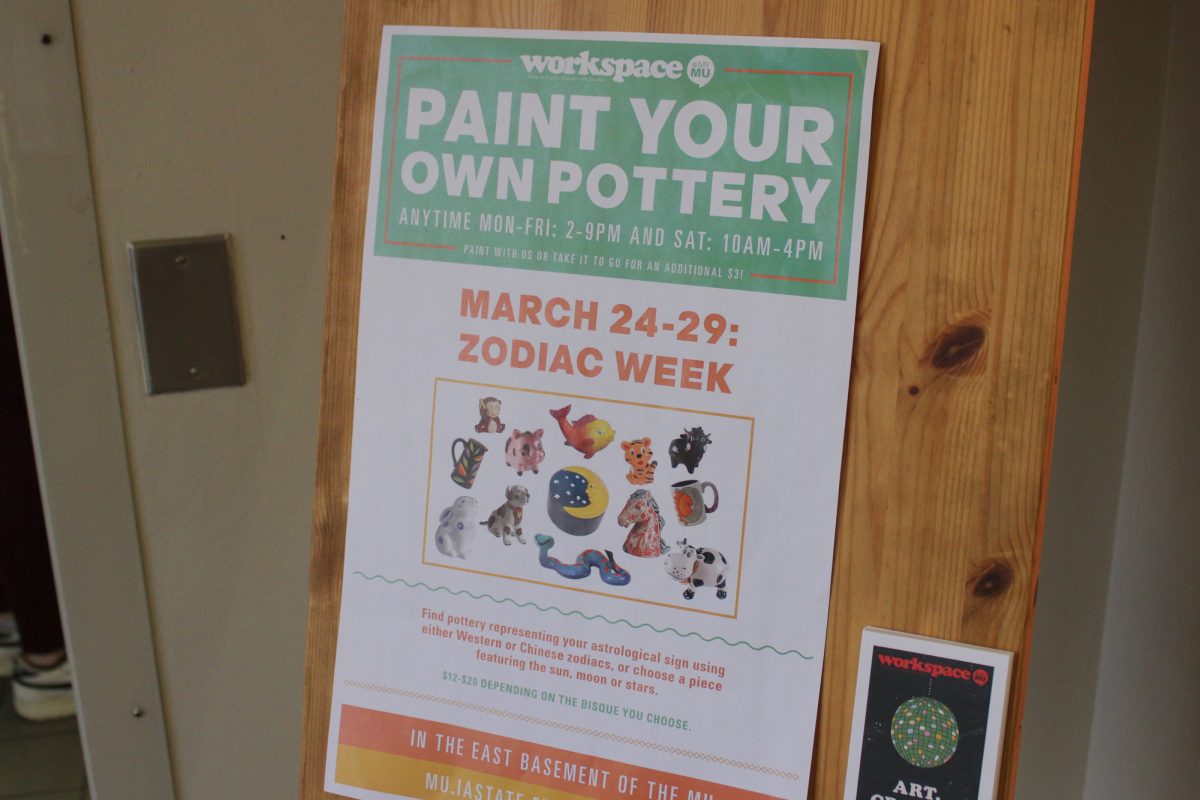ISU students protest against Libyan dictator Gaddafi
Photo: Huiling Wu/Iowa State Daily
Aermin Sabiy, graduate student, Dalia Abo Sheasha, senior in software engineering, and Emily Hull, graduate in chemistry, protest in front of Parks Library on Tuesday, Feb.22.
February 22, 2011
An Arab-based community gathered outside Parks Library on Tuesday afternoon to protest in an act of solidarity for the protestors enduring atrocities back in Libya.
Members from the Egyptian Student Association, Muslim Student Association and African Students Association gathered in an effort to support Libyans and to inform Americans about issues in the Middle East.
Col. Muammar Gaddafi has been dictator in Libya for 41 years and has had dissatisfied citizens for as many years. Libyan citizens’ uprisings and protests against Gaddafi have gained attention in the past eight days, though they have been months in the making.
Abd Elhamid Azzaz, graduate in biochemistry, biophysics and molecular biology, was one of the participants in the protest Tuesday. Azzaz said they were protesting the brutality thrust upon the protestors in Libya.
“There are probably at least 1,000 dead. There have been shootings and tanks; it’s very catastrophic,” Azzaz said.
At least 300 have been killed within six days, according to The Wall Street Journal, but the actual number is more than likely much higher.
Tripoli, Libya’s capital, is located in the northwest corner of the country, and tribes in the eastern part have been vocal in their opposition to Gaddafi’s regime.
“He’s hired mercenaries from Africa, ordered his sons to kill people with bullets,” Azzaz said. “His whole regime and cabinet are killing the people.”
Libya has high income, but the political structure is deceitful and the infrastructure is failing its citizens, Azzaz said.
Protests in Tunisia and Egypt have sparked a desire and inspiration for Libyans to start their own revolution to battle the crimes against their country and Gaddafi’s dictatorship.
“He is crazy. [He’s] making false claims and turning against his own country,” Azzaz said.
Within the ISU protest, there were no students, professors or community members from Libya.
“It’s a humanity thing, they are our brothers in humanity and in Arab culture,” Azzaz said. “We are here to let the local media know about what’s happening, because the media has turned a blind eye.”
Gaddafi has lost respect from his citizens, other Arabs and the international audience.
“I believe he should be prosecuted as a war criminal,” Azzaz said.
For an Arab Americans such as Hassan Elahi, sophomore in biology, he looks at these issues from abroad with a compassionate heart.
“I wanted to come out today because of what’s happening in the Arab world,” Elahi said. “There are a lot of corrupt leaders, and people all over are protesting for their freedoms.”
Elahi was born in Ames but is half-Iranian and has spent a portion of his life living in Iran.
“Many people I have talked to have no idea what’s going on. They don’t even know what happened in Egypt,” Elahi said. “And now [in Libya] they are using fighter jets to control their people and kill them. We are here to support and inform people.”
The revolutions in the Middle East are groundbreaking for the people and for the hope of new democracies, but also pivotal for womens’ rights.
Muniba Saleem, graduate in psychology, was one of the many female participants in the protest.
“It’s a worthwhile effort to show we support [Libya] and support the peaceful protest effort,” Saleem said. “The media is not doing a good enough job covering what’s happening.”
The female protestors in Egypt made history by participating in uprisings in the streets for their rights. This bravery has carried over to other countries.
“Women need to be a part of this and show their active support and show their voice, because they do have a voice, so they might as well reflect it,” Saleem said.
CNN produced a video of Gaddafi’s televised speech given Tuesday, where he said he will die a martyr before he gives up his power and will not back down to his people.







